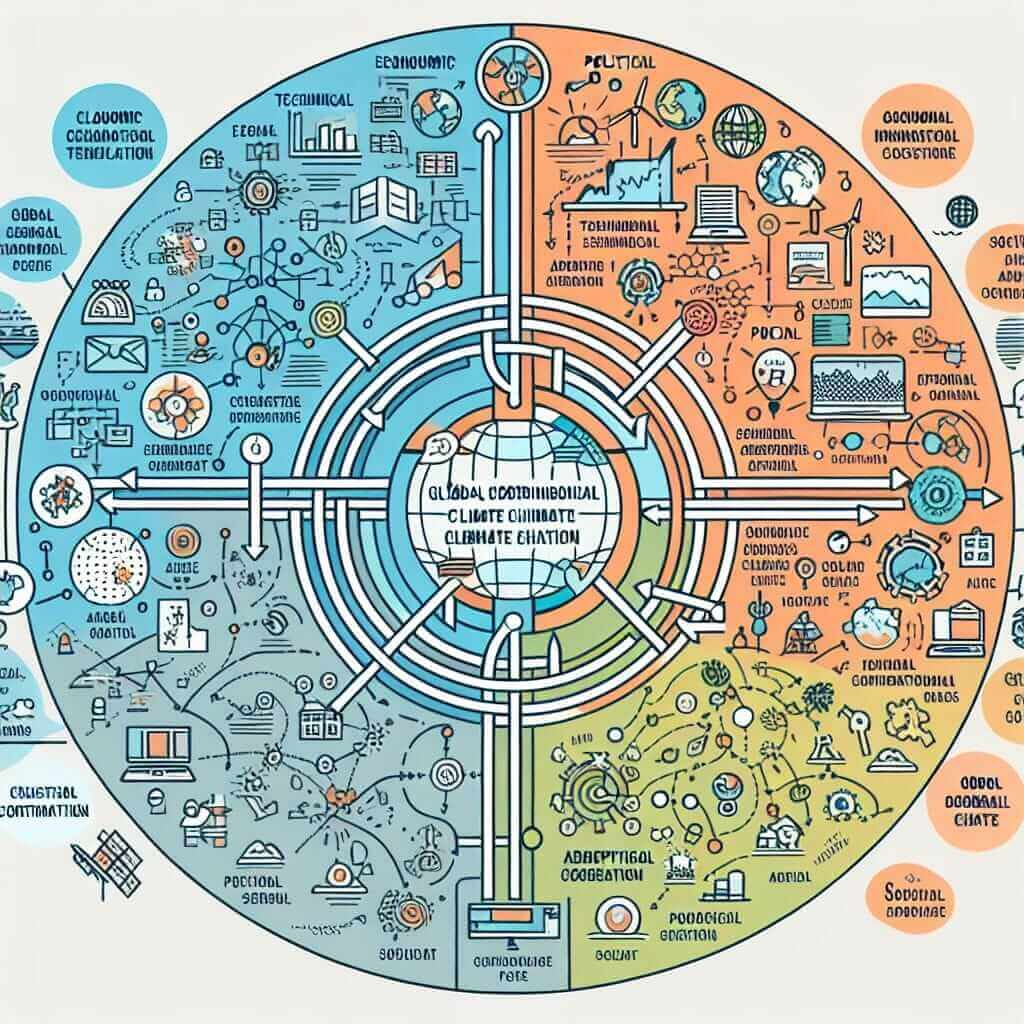The IELTS Reading test, a crucial component of the IELTS exam, evaluates a candidate’s ability to comprehend and interpret written texts. Topics relating to global issues, such as climate adaptation, frequently appear on the test due to their significant relevance and importance in today’s world. Understanding these subjects can help candidates prepare better and achieve a higher score. In this article, we will delve into the challenges of achieving global climate adaptation and use this topic as a practice reading passage. This example is inspired by previous IELTS reading passages observed in the exam over the years.
Why Climate Adaptation is a Common IELTS Topic?
Climate adaptation is not only a social imperative but also an interesting and complex topic that can test a candidate’s reading skills comprehensively. Given its ongoing relevance, it’s likely to appear in future IELTS exams. Let’s dive into the reading passage and the questions that follow.
Reading Passage: Achieving Global Climate Adaptation
Adaptation to Climate Change: Challenges and Realities
Climate adaptation involves adjusting to actual or expected future climate and its effects. The main goal is to reduce vulnerability to harmful impacts of climate change, such as sea-level rise, warmer temperatures, or extreme weather events. While the need for adaptation is increasingly recognized, significant challenges exist in implementing these strategies globally.
Economic Constraints
One of the primary challenges is economic constraints. Implementing effective adaptation measures often requires substantial financial resources, which are not evenly distributed worldwide. Developing countries, which are often more affected by climate change, typically have fewer financial capabilities to invest in resilient infrastructure or advanced technology.
Technological Barriers
Another obstacle is the lack of access to appropriate technology. Many regions do not have the necessary technological means to implement effective adaptation measures. This disparity makes it difficult for nations to take proactive steps towards climate resilience.
Political and Institutional Hurdles
Political will and institutional robustness play a significant role in climate adaptation. In many countries, political instability and weak institutions hinder the development and execution of adaptation policies. Commitment from all levels of government is essential for lasting climate adaptation strategies.
Social and Cultural Factors
Societal and cultural factors also pose challenges. In some communities, there is limited awareness or understanding of climate change and its impacts, which results in resistance to adaptation measures. Cultural beliefs and practices can influence how climate risks are perceived and managed.
Coordination Between Nations
Global coordination is crucial but challenging. Climate change is a global problem that requires a collective response. However, coordinating efforts across different countries with varying priorities and capabilities can be a significant hurdle. International collaboration is necessary but often complicated by geopolitical tensions and differing national interests.
Practice Questions
Question Type 1: Multiple Choice
-
What is the primary goal of climate adaptation?
- A. To stop climate change completely
- B. To reduce vulnerability to climate impacts
- C. To develop new economic policies
- D. To enhance technological advancement
-
Which of the following is a significant economic challenge in climate adaptation?
- A. Lack of skilled labor
- B. Uneven distribution of financial resources
- C. Poor political will
- D. Social resistance
Question Type 2: Identifying Information (True/False/Not Given)
-
Developing countries have ample financial resources for climate adaptation.
- A. True
- B. False
- C. Not Given
-
Social and cultural beliefs do not affect climate adaptation efforts.
- A. True
- B. False
- C. Not Given
Question Type 3: Summary Completion
Complete the summary using words from the passage.
Implementing climate adaptation measures globally faces several barriers. Economic constraints are a major issue, especially in (5) __ countries. Access to necessary (6) __ is also limited in many regions. Another obstacle is the lack of political and institutional (7) __, which affects the reliability of adaptation strategies. Additionally, (8) __ and cultural factors, including limited awareness and resistance to change, pose significant challenges. Effective adaptation requires global (9) __, which is often complicated by differing national priorities.
Answers and Explanations
- B – The primary goal of climate adaptation is to reduce vulnerability to harmful impacts of climate change.
- B – The passage mentions that financial resources are not evenly distributed worldwide, presenting a significant economic challenge.
- False – The passage states that developing countries typically have fewer financial capabilities for climate adaptation.
- False – The passage indicates that social and cultural factors can influence how climate risks are managed.
- Developing
- Technology
- Robustness
- Social
- Coordination
Lessons Learned
Common Mistakes
Some common mistakes candidates make include misunderstanding the main goal of climate adaptation and confusing technological challenges with economic ones. It’s crucial to read each passage carefully and understand the context of each point presented.
Vocabulary Enhancement
- Vulnerability (noun) /ˌvʌl.nər.əˈbɪl.ɪ.ti/: the quality of being easily hurt or attacked.
- Resilience (noun) /rɪˈzɪl.i.əns/: the capacity to recover quickly from difficulties.
- Institutional (adjective) /ɪnˌstɪ.tʃuːˈʃən.əl/: relating to an established organization.
Grammatical Structures
- Complex Sentences: Used to add details and nuances, e.g., “Although the need for adaptation is recognized, significant challenges exist.”
- Passive Voice: Often used in formal writing to emphasize actions rather than the doer, e.g., “Global coordination is crucial but challenging.”
Conclusion and Tips
To excel in the IELTS Reading section, practice regularly with passages on a variety of topics, especially those relevant to current global issues. Pay attention to new vocabulary and grammatical structures in each passage. Use the feedback from practice questions to identify and address your weaknesses before the exam.

For more articles like this, ensuring enhanced practice and preparation, feel free to explore other related readings:
Remember, thorough preparation and consistent practice are the keys to achieving a high band score in the IELTS Reading section.